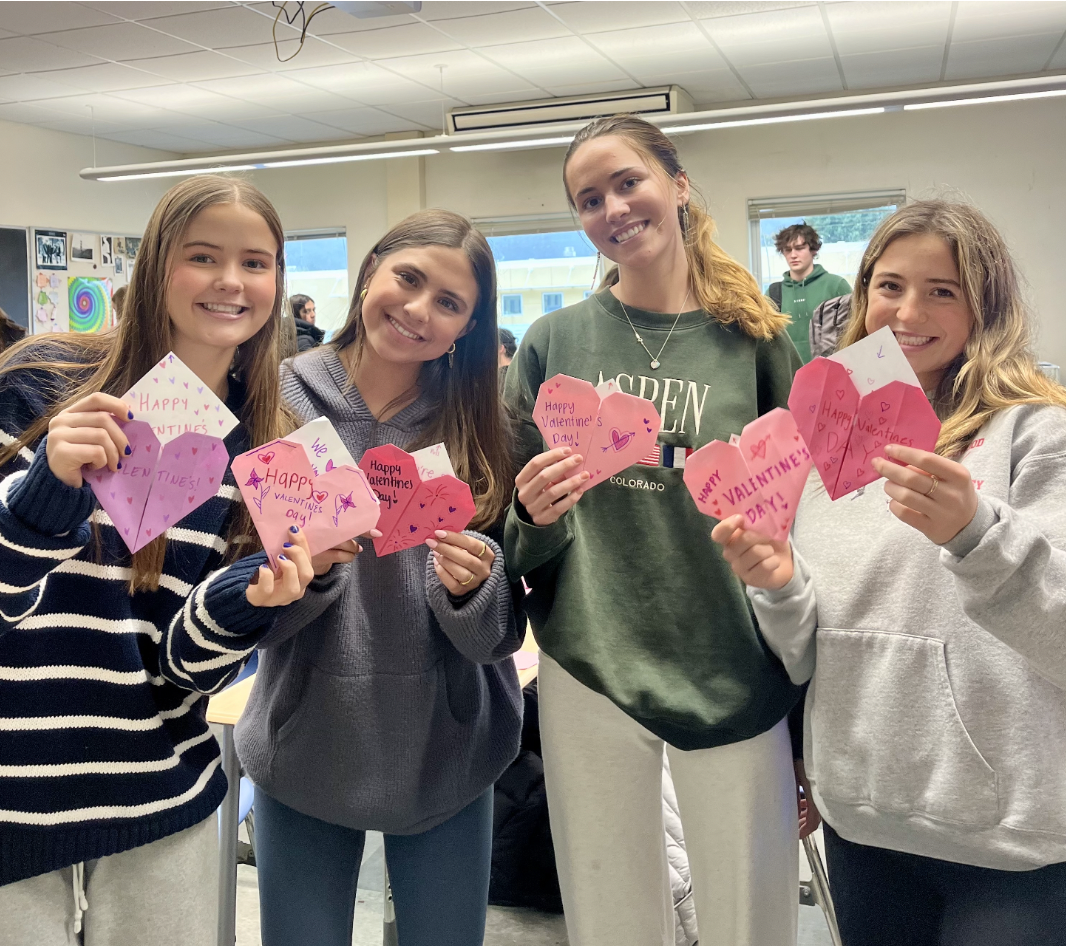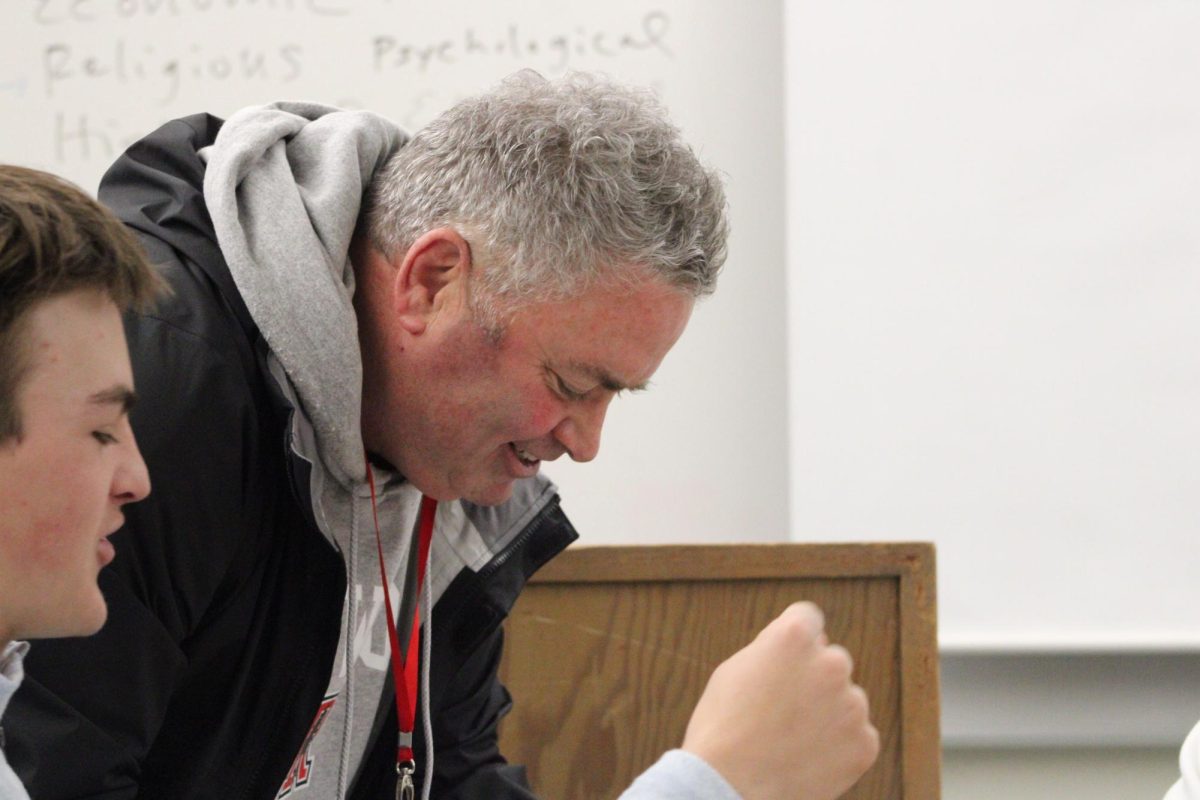
Year after year, groups of high school students prepare to leave home after graduation in hopes of gaining a new experience. However, a select few had that opportunity earlier than the rest by studying abroad.
One of the more common destinations for students to study is Spain, a natural choice since Spanish is the most commonly studied language at Redwood. Seniors Justin Whitmer and Gretchen Aubel and junior Esther Avilés are three students who had their lives significantly changed by their experience overseas in Spain.
Aubel spent her time with a host family, including a host sister of similar age. The only Spanish she knew was what she learned in school, but she said she was able to pick it up quickly during her stay.
“During the summer between my sophomore and junior year I spent three weeks in Madrid with a family my friend connected me with, so there was no program, but it was just as great of a learning experience,” Aubel said.
Because she didn’t go through a program, Aubel said there weren’t very many people to meet who were in a similar exchange situation. Everyone she met while she was there expected her to converse in Spanish, so she needed to adapt very quickly.
“I definitely was able to work on speaking and being able to understand Spanish as the main thing because I was surrounded by it 24/7,” Aubel said. “I think that since I had taken Spanish at school it kind of helped, but full immersion is important because the only real way to learn the language is if you’re engulfed in it.”
Aubel, who is now in AP Spanish, is still able to continue studying the language. She also said she maintains the friendships made in Spain by talking to them on Facebook or on the phone.
While full immersion is an effective way to learn a language quickly, it doesn’t always make for a positive experience. Justin Whitmer, who studied abroad for an entire year, struggled for the first two months by having difficulty with the language and a rough transition.
“When I got there it was hard to communicate, and class was near impossible for the first two months,” Whitmer said. “I pretty much just slept all throughout the day because you go in there and you think you know some Spanish but you actually know nothing.”
Prior to his trip he had taken the language for two years and only had basic conversational knowledge. The difficult part for Whitmer came while trying to differentiate between the dialects.
“In Spain there aren’t really states, they have regions and each region kind of has their own native language,” Whitmer said. “Where I lived they spoke a dialect of Portuguese so I had to learn both, which was one of the hardest things I’ve ever done in my life.”
Junior Esther Avilés opted to join American Field Service España (AFS) after completing Spanish 5-6. She lives in Valladolid with a Spanish family, and attends a Spanish high school. Avilés said one thing that helped her make the language transition was her knowledge of human nature and how it shapes communication.
“There is nothing we enjoy more than correcting other people, and from the first day I was able to utilize that knowledge and apply it to my language skills,” Avilés said. “People feel smart, helpful and important when they correct a foreign exchange student, so I made a lot of friends that way.”
Although the language transition is often an awkward and unnatural, it’s also rewarding. For both Whitmer and Avilés it took about three months to fully grasp Spanish, but after six months Avilés said she not only dreams in the language, but can also read so well that it’s almost indistinguishable from reading in English.
However, for Swedish exchange student Felicia Kanne, she said her transition to Redwood came naturally. Both her mother and sister were exchange students in America when they were in high school, so it had always been a dream of hers to make the trip.
Kanne, a senior, was required to learn English from an early age, and said she is amazed at how she doesn’t have to think about her words anymore after studying in America for over a semester.
“During nighttime the language is very hard, though, because when I’m tired I can’t speak English properly,” Kanne said.
For those who have lived in Marin County all their lives, it can be difficult to imagine anywhere else. But for those who participated in an exchange program, they were able to learn more about Marin by leaving it than by living in it.
Aubel noticed that the sense of community was stronger in Spain, as well as a heightened sense of trust between parent and child.
“As a teen you don’t leave your house until 10:30-11:00 and you come back at 3:00-4:00 in the morning,” Aubel said. “The freedom there is a lot better but it also comes with responsibility and things like that.”
Kanne said she opted to leave Sweden for a year because she became weary of Swedish society and its norms. She was at first surprised at how different the teenage culture is here, but came to love the relaxed nature.
“Here everyone has a car and a driver’s license and everyone wears yoga pants,” she said. “Comparing it to my school which is so preppy, if I came to school with no makeup and yoga pants people would be staring at me saying, ‘Why is she not wearing normal clothes?’”



!["I knew I wanted to be a writer. I wasn't a good student [at Redwood], but I wanted to be a writer, and I wanted to paint. I'm self-taught in all of it, which gave me an original voice," Paige Peterson said. (Photo courtesy of Paige Peterson’s website).](https://redwoodbark.org/wp-content/uploads/2025/02/ppeterson.png)








